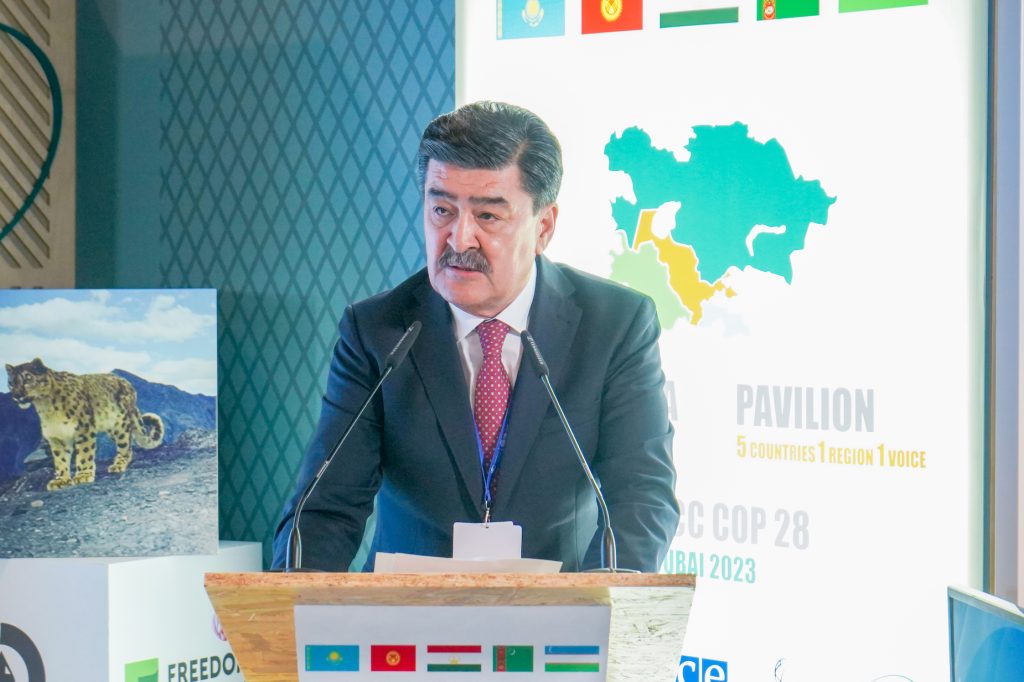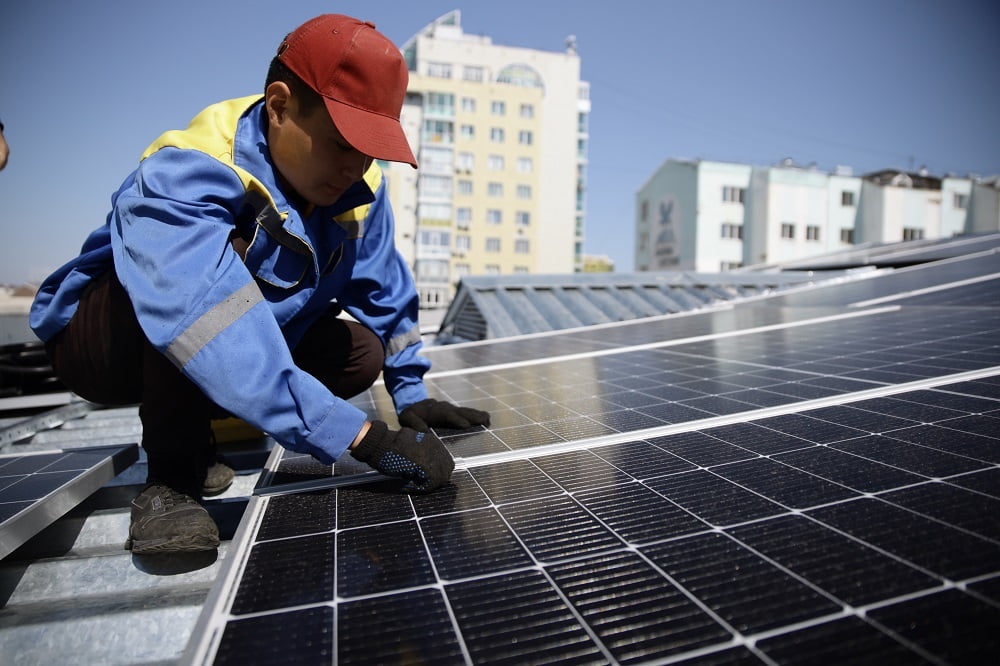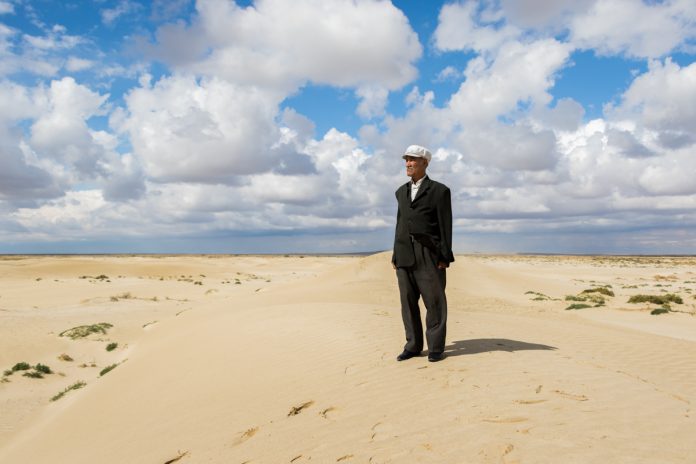At COP28, the United Nations Development Program (UNDP) in Kazakhstan organized a Green Projects Pitching Event to spotlight innovative and sustainable initiatives across Central Asia, showcasing a collaborative commitment to green growth and climate resilience.
The Central Asian nations of Kazakhstan, Kyrgyzstan, Tajikistan, Turkmenistan, and Uzbekistan are presenting a common regional position on the most pressing climate issues at a global scale, adopting a cooperative approach: Five countries – one region – one vote, UNDP in Kazakhstan said.
As part of a region vulnerable to the effects of climate change, Central Asian countries actively participated in the COP28 climate policy negotiations, advocating for joint commitments to reduce emissions, achieve carbon neutrality, and secure access to climate finance for the region.
“The climate crisis knows no borders; it is a challenge that transcends individual nations. Success in addressing this global issue requires collective action. Together, the global community must pool our expertise, resources, and innovation to tackle climate change comprehensively, ensuring a sustainable future for all,” UN’s Climate Change Specialist for Europe and Central Asia, Nuri Ozbagdatli said. “In the countries of Central Asia, we strongly believe in the vast potential offered by the region’s nature, population, and especially its youth. These factors form crucial elements in our joint endeavors to confront and overcome the challenges posed by climate change.”
The event was opened by the Ministers of Ecology from three Central Asian countries: Kazakhstan, Kyrgyzstan, and Uzbekistan.

Kazakhstan’s Ecology and Natural Resources Minister Yerlan Nyssanbayev said in his welcoming speech that achieving a substantial reduction in greenhouse gases requires significant financial investments. He noted that the strategy of low-carbon development adopted by Kazakhstan this year estimates a net investment of $610 billion in low-carbon technologies. At the same time, the importance of climate financing, which helps societies and economies build resilience and adapt to the impacts of climate change, cannot be overstated.
Renewable energy agreements
During COP28 in Dubai, Kazakhstan and the United Arab Emirates inked a renewable cooperation agreement that includes plans by Masdar, W Solar, Qazaq Green Power, and the Kazakhstan Investment Development Fund to develop a 1GW wind project.
“The government agreement for the development of a 1 GW large-scale wind power project that we are signing today is in line with the policy of the Republic of Kazakhstan to combat global climate change, including by achieving carbon neutrality by 2060,” Kazakhstan Energy Minister Almassadam Satkaliyev said.

At UNFCCC-28 in Dubai, Kyrgyzstan’s Energy Ministry also signed an agreement with France’s electric utility companies, EDF and the UAE’s Masdar to explore the development of hydropower and renewable projects with a combined capacity of up to 3.6 GW.
Kyrgyzstan’s Energy Minister Taalaibek Ibraev said hydropower is a very important energy source for Kyrgyzstan and this agreement will help the Central Asian country to strengthen its existing clean energy supply and to develop projects utilizing other renewable energy sources.
Kyrgyzstan has set a target of reducing greenhouse gas emissions by as much as 44 percent by 2030 and achieving carbon neutrality by 2050. The country already generates around 90 percent of its electricity from clean energy resources, almost exclusively from hydropower plants.
The government of Uzbekistan is also taking measures to combat climate change and has set a goal of generating 25 percent of its energy from renewables by 2030. Earlier this year, The Asian Development Bank and Masdar signed three loans to build three solar power plants in Uzbekistan’s Surkhandarya, Samarkand, and Jizzakh regions. Together these power plants will be able to generate 897 MW, making them the region’s largest solar power development.
On the sidelines of COP28, Uzbekistan’s President Shavkat Mirziyoyev met with the UAE’s Minister of Investment and Abu Dhabi National Energy Company CEO Mohammed Hassan Al Suwaidi and delegations of leading companies.
Addressing the conference, Mirziyoyev said, “Transition to a green economy and achieving carbon neutrality are the key strategic objectives of the New Uzbekistan.”
“In recent years, the share of alternative energy in our country has doubled. We are establishing 25 gigawatts of renewable capacities by 2030. We have made the first practical steps in green hydrogen production,” Mirziyoyev added.
Adverse effects of climate change evident in Central Asia
The Uzbek President stressed that the adverse effects of climate change are particularly evident in Central Asia due to the Aral Sea catastrophe, once the fourth-largest inland body of water in the world. “In our region, the increase in temperature is twice as high as that of the global average. The number of extremely hot days has doubled, and one-third of the glaciers have completely melted.”

Per the resolution of the United Nations General Assembly, Uzbekistan is keen on transforming the Aral Sea region from an environmental disaster zone to a “hub of innovations, technology, and new opportunities,” Mirziyoyev said, adding that his country is the Adaptation Strategy within the Central Asian Climate Dialogue Platform.
“As part of the Yashil Makon (Green Space) initiative, we are planting one billion trees all over the country. We have afforested over 2 million hectares on the desiccated seabed of the Aral Sea,” the Uzbek President said.
Mirziyoyev called for support for Uzbekistan’s initiative to hold the Samarkand International Climate Forum next year.








